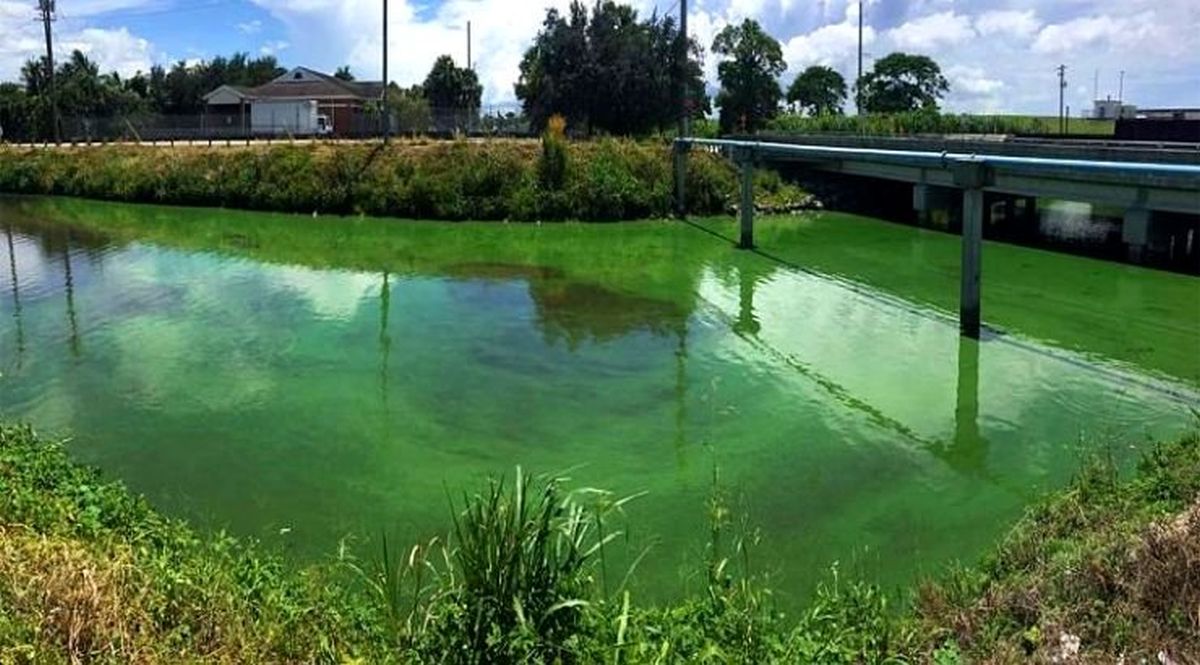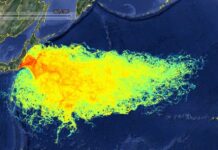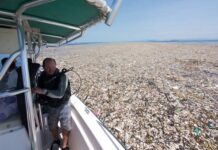For the first time ever, the U.S. Army Corps of Engineers has admitted to knowingly dumping toxic water from Lake Okeechobee into Florida estuaries, without any warning to the public.
Last week, during a meeting of the House Transportation and Infrastructure Committee, Republican Congressman Brian Mast questioned Maj. Gen. Scott Spellmon of the Army Corps regarding the diversion of water containing cyanobacteria from Lake Okeechobee into estuaries on Florida’s east and west coasts.
“Has the Army Corps of Engineers transferred toxic water from Lake Okeechobee to the east through the C-44 [canal] into the St. Lucie Estuary and the Indian River Lagoon and to the west through the Caloosahatchee River?” Mast asked Spellmon.
Spellmon then admitted that they knew the Army Corps had been dumping toxic water into Florida estuaries and that the agency was aware the water contained “harmful algae blooms”.
After the meeting, Mast’s office made announced that they would put an end to the practice immediately.
“Now that the Army Corps acknowledges that the water they are discharging is toxic, they cannot continue to wilfully and knowingly poison our community. The Army’s mission is to defend the American people, so they have a duty to prioritize protecting public health when they make operational flood control decisions. The changes they made lowering Lake Okeechobee this winter to prevent discharges are working, and they must commit to making these changes long-term to prevent this massive public health crisis. Anything less than that is an unconscionable failure by our government.”
According to Politico journalist Michael Grunwald, the government secretly started dumping the toxic water nearly a century ago after a hurricane caused a flood that killed thousands of people, to prevent another event like that from happening.
Still, they had no right to hide this practice from the public especially when they knew cyanobacteria can have terrible effects on Florida’s estuaries where salt water and fresh water meet to create some of the most productive ecosystems on the planet. Travis Wilson, a Palm City resident and commercial fisherman, states:
“They can’t deny it at this point. It affects us all from the crabbers to the people that fish the river all the way out to the ocean. Although the comments provided by the Army Corps of Engineers during the Congressional hearing do not change the City’s position that freshwater discharges are destructive to our community and environment, we appreciate their honesty; which validates the concerns expressed by so many members of our community.”
Critics and environmentalists claim government officials often turn a blind eye to water pollution in the state as they “fail” to enforce the “Polluter Pays” amendment to the Florida Constitution, approved in 1996, which ensures polluters are held financially responsible for their environmental impact.
“You have a major industry that is saying, ‘We are so powerful we don’t want to pay for our pollution treatment. … Taxpayers, you are going to pay for it. Tough luck,'” said Albert Slap, board member for the Friends of the Everglades environmental group. “It stood Polluter Pays on its head.”






